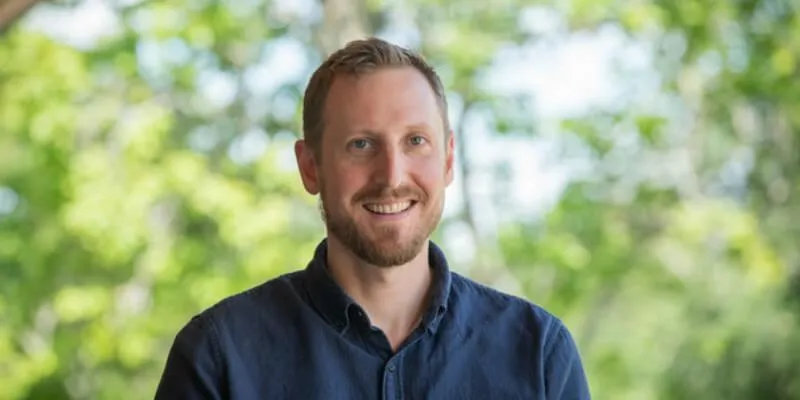Harlan Morehouse looked forward to meeting his summer class of high school students this July, and lead them on a wide-ranging exploration of the politics of climate change.
But with the onset of COVID-19, he was compelled to return to the drawing board to create a safe, interactive online learning environment that aims to address the immensity of climate change in addition to the ongoing challenges around COVID-19.
“It didn’t make much sense to me to teach a political ecology course without acknowledging the context we’re living in now,” Morehouse said of his upcoming UVM Summer Academy course “Facing Environmental Futures.”
Morehouse’s own research focuses on social, cultural, and political implications of environmental change, with an eye to creating sustainable responses and fostering better futures. While the pandemic came like a lightning bolt, and climate change resulted from many long-simmering inputs over a period of centuries, Morehouse sees many parallels between the crises.
“Many of the processes that we attribute to global environmental change—like habitat destruction, environmental degradation, and biodiversity loss—are also factors in the production of pandemics.”
Morehouse is clear that some of the course content will be intense in dealing with heavy topics head-on: climate change, extinction, and pandemics. “These unfolding events can be very overwhelming,” says Morehouse. “However, to feel overwhelmed in the face of these challenges is entirely reasonable.”
Much of this class, he says, "involves working through the psychological weight of current circumstances so that we might build better futures."
Morehouse’s redesigned course has synchronous elements—students will periodically gather through an online video platform to interact and discuss course material. He’s also including small-group projects to encourage the kind of collaboration that happens in a more traditional class setting.
“I think it’s important for students to see and hear each other and build a group dynamic, and the small class size helps to make that happen” Morehouse said. “But this isn’t going to be the kind of course where students are in continuous class meetings, 9-5 behind their computers.”
The coursework is based on developing insights about our fundamental connections to the environment, so Morehouse is working in elements he often uses in his UVM classes, including having students spend solitary time outdoors making observations about what they see and hear, and recording their reflections in journals, poetry, or video and sound recordings. While the course explores causes of climate change and effects like pandemics, he believes reinforcing student connections with the outdoors is key to creating lasting change.
“There’s a lot to be said for being present to world around us and taking notice of the subtle patterns that we often aren’t attuned to,” Morehouse says. “To create a more just, more equitable future, we have to stand up for the earth and the environment. But I find it’s easier for young people to fight for this world after they’ve fallen in love with it.”
UVM’s Summer Academy is an immersive online program designed to give students in the 10th, 11th and 12thgrades the opportunity to explore a specific field of study and get a head start on their college careers, while earning college credit.
